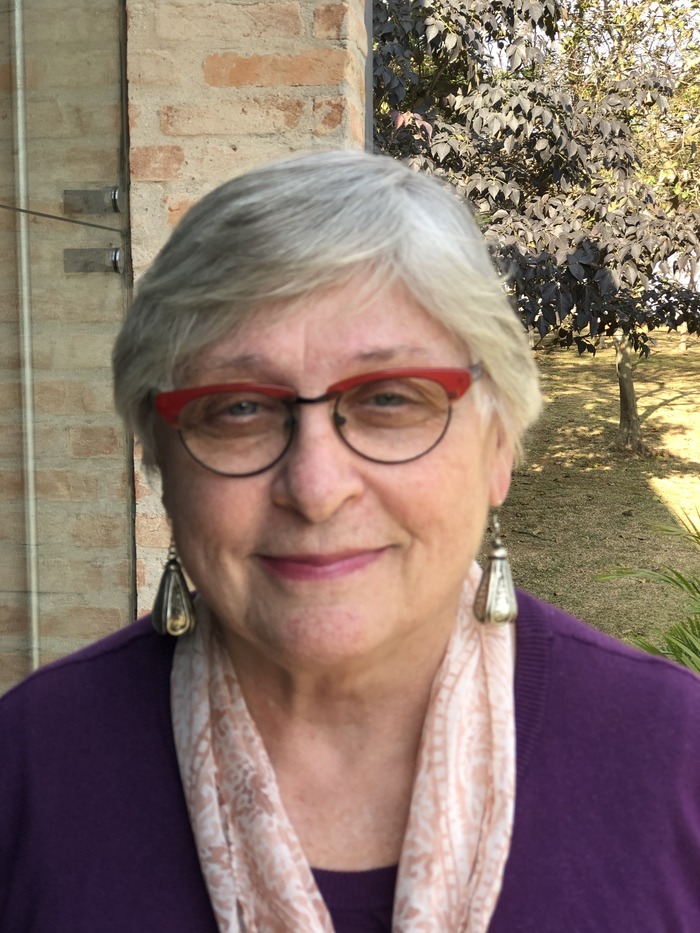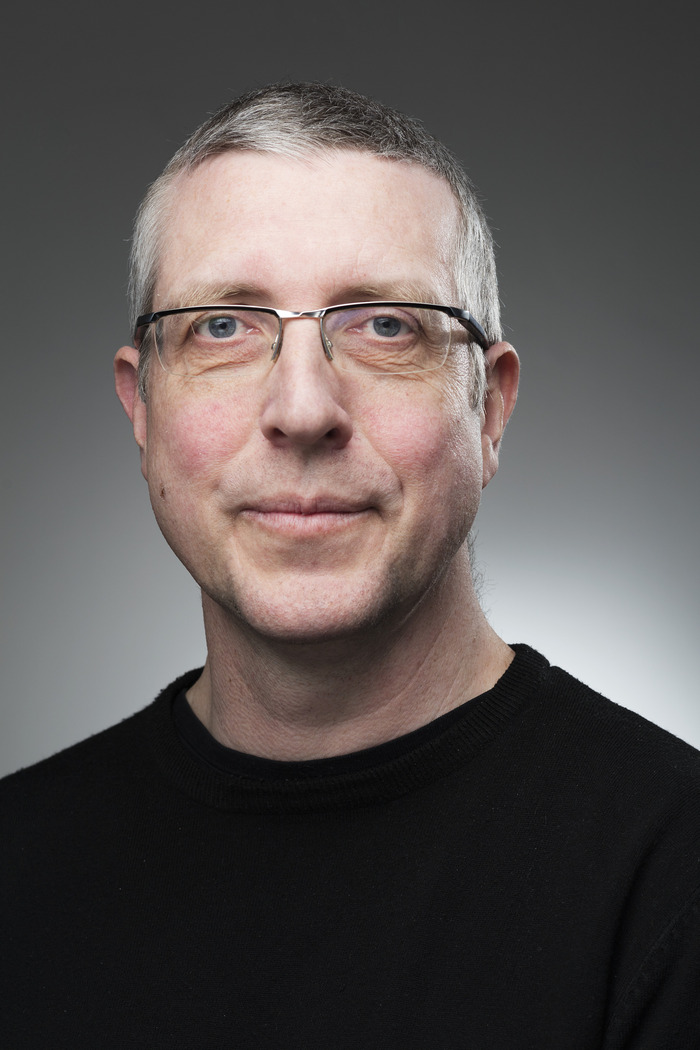External Advisory Board
In 2019 CICANT started, in parallel with the evaluation process ensured by the national structures, a process that aims at the adoption and implementation of procedures and mechanisms for internal quality assurance to boost the activities of the centre and its researchers and new scientific achievements.
To help consolidate this objective, CICANT has invited three recognised experts in the Centre's main areas of expertise to join the External Advisory Board:
- Maria Dora Mourão
 Maria Dora G. Mourão is Full Professor at the Department of Cinema, Radio, and Television - School of Communications and Arts of the University of São Paulo, Brazil, where she was awarded the title of Professor Emeritus in 2022. She carried out Postdoctoral Studies at the Écoles des Hautes Études en Sciences Sociales- E.H.E.S.S. Centre de Recherches sur les Arts et le Langage, Paris-France with focus in cinema and new technologies. She has several publications highlighting:
Maria Dora G. Mourão is Full Professor at the Department of Cinema, Radio, and Television - School of Communications and Arts of the University of São Paulo, Brazil, where she was awarded the title of Professor Emeritus in 2022. She carried out Postdoctoral Studies at the Écoles des Hautes Études en Sciences Sociales- E.H.E.S.S. Centre de Recherches sur les Arts et le Langage, Paris-France with focus in cinema and new technologies. She has several publications highlighting:
- Harun Farocki: por uma politização do olhar. Org. Maria Dora Mourão, Cristian Borges e Patricia Mourão. Catálogo publicado pela Cinemateca Brasileira, São Paulo, 2010.
- El cine de lo real. Org. Amir Labaki e Maria Dora Mourão. Ediciones Colihue, Buenos Aires, 2011, 230 p.
- O Cinema do Real. Org. Maria Dora Mourão e Amir Labaki. Cosac e Naify, São Paulo, 2005. 1 a edição Cosac Naify Portátil, 2014.
- The 21st Century Film, TV & Media School: challenges, clashes, changes. Org. Maria Dora Mourão, Stanislav Semerdjiev, Cecilia Mello e Alan Taylor, CILECT, Bulgária,
2016.
- The 21st Century Film, TV & Media School: Directing the Future, org. Maria Dora Mourão, Stanislav Semerdjiev, Cecilia Mello e Alan Taylor, CILECT, Bulgária, 2019.
- Images from the South: Contemporary Documentary in Argentina and Brazil. Co-authorship with Ana Amado. In: The Documentary Film Book. Edited by Brian Winston,
BFI / Palgrave Macmillan, UK, 2013. p. 228-236.
- Santiago. In Documentário Brasileiro: 100 filmes essenciais. Org. Paulo Henrique Silva. Letramento, Belo Horizonte, 2017.
As for artistic production, she was responsible for editing several Brazilian short films, with emphasis on the medium-length documentaries “São Paulo, Sinfonia e Cacofonia” directed by Jean Claude Bernardet and “São Paulo, Cinemacidade” directed by Aloysio Raulino, both from 1997. These films were the result of academic research into the history of cinematographic production by directors from the city of São Paulo, forming a tribute to them.
During her academic career, she founded and was president of two important Brazilian associations: SOCINE- Brazilian Society for Film and Audiovisual Studies and FORCINE- Brazilian Forum for Teaching Cinema and Audiovisual. Regarding administration and management activities, she was Vice-Dean of the School (2009-2012) and Head of the Department for three intermittent periods of four years each. She was President of CILECT (The International Film and Television School Association) from 2011 to 2018, having received the title of Honorary Member. She is currently General Director of the Brazilian Film Archive (Cinemateca Brasileira).
 Johan Siebers is Professor of Philosophy of Language and Communication at Middlesex University London and Director of the Ernst Bloch Centre for German Thought at the Institute of Languages, Cultures and Societies of the School of Advanced Study, University of London. He is founding and principal editor of the European Journal for Philosophy of Communication (Empedocles), published in cooperation with ECREA's Philosophy of Communication Section. He is co-editor of Routledge Research in Anticipation and Futures and editor of the Bloch Bibliothek in Brill's Historical Materialism book series. His research is located at the crossroads of philosophy, rhetoric, linguistics and communication studies, in particular conceptions of dialogue and the link between communication and futurity, including environmental futures. Central to his work is the idea that communication presents a fundamental challenge to inherited modes of philosophical thought. Full profile and access to publications: https://www.mdx.ac.uk/about-us/our-people/staff-directory/profile/siebers-johan
Johan Siebers is Professor of Philosophy of Language and Communication at Middlesex University London and Director of the Ernst Bloch Centre for German Thought at the Institute of Languages, Cultures and Societies of the School of Advanced Study, University of London. He is founding and principal editor of the European Journal for Philosophy of Communication (Empedocles), published in cooperation with ECREA's Philosophy of Communication Section. He is co-editor of Routledge Research in Anticipation and Futures and editor of the Bloch Bibliothek in Brill's Historical Materialism book series. His research is located at the crossroads of philosophy, rhetoric, linguistics and communication studies, in particular conceptions of dialogue and the link between communication and futurity, including environmental futures. Central to his work is the idea that communication presents a fundamental challenge to inherited modes of philosophical thought. Full profile and access to publications: https://www.mdx.ac.uk/about-us/our-people/staff-directory/profile/siebers-johan
 Nico Carpentier is Extraordinary Professor at Charles University (Prague, Czech Republic), a Visiting Professor at Tallinn University (Estonia) and President of the International Association for Media and Communication Research (2020-2024). His theoretical focus is on discourse theory, his research is situated in the relationship between communication, politics and culture, especially towards social domains as war & conflict, ideology, participation and democracy. He frequently uses arts-based research methods, as a hybrid scholar, artist and curator. His latest monographs are The Discursive-Material Knot: Cyprus in Conflict and Community Media Participation (2017, Peter Lang, New York) and Iconoclastic Controversies: A Photographic Inquiry into Antagonistic Nationalism (2021, Intellect, Bristol). The most recent special issues he edited are Arts-based Research in Communication and Media Studies (2021, with Johanna Sumiala) in Comunicazioni Sociali and Mediating Change, Changing Media (2022, with Vaia Doudaki and Michał Głowacki) in the Central European Journal of Communication. His last exhibitions were The Mirror of Conflict photography exhibition in October 2023 at the Energy Museum, in Istanbul, Türkiye, and the Moulding Nature arts exhibition in Färgfabriken in Stockholm, Sweden.
Nico Carpentier is Extraordinary Professor at Charles University (Prague, Czech Republic), a Visiting Professor at Tallinn University (Estonia) and President of the International Association for Media and Communication Research (2020-2024). His theoretical focus is on discourse theory, his research is situated in the relationship between communication, politics and culture, especially towards social domains as war & conflict, ideology, participation and democracy. He frequently uses arts-based research methods, as a hybrid scholar, artist and curator. His latest monographs are The Discursive-Material Knot: Cyprus in Conflict and Community Media Participation (2017, Peter Lang, New York) and Iconoclastic Controversies: A Photographic Inquiry into Antagonistic Nationalism (2021, Intellect, Bristol). The most recent special issues he edited are Arts-based Research in Communication and Media Studies (2021, with Johanna Sumiala) in Comunicazioni Sociali and Mediating Change, Changing Media (2022, with Vaia Doudaki and Michał Głowacki) in the Central European Journal of Communication. His last exhibitions were The Mirror of Conflict photography exhibition in October 2023 at the Energy Museum, in Istanbul, Türkiye, and the Moulding Nature arts exhibition in Färgfabriken in Stockholm, Sweden.
The EAB acts as a sounding-board for the Board of Directors helping the Centre gain new insights and advice to overcome difficulties and or fragilities and explore new opportunities by stimulating robust, high-quality critical thinking and analysis.
The EAB's intervention so far has focused on two specific moments. In 2019, where an initial assessment of the Centre, of our activities and proposals for the future was carried out, meeting face-to-face, in Lisbon, both with the Board and with the integrated researchers and PhD students. And in a second and more recent moment, in 2021, where in a format adjusted to online, it had the possibility to interact with the same stakeholders, evaluating the progression curve of the Centre's activities, comparing the current panorama with that which was analysed in 2019.
From these moments of critical reflection and constructive dialogue, reports and recommendations are produced which are translated into measures that the Board, at the General Assembly, annually proposes and daily consolidates.
Reports
REPORT of External Advisory Board Visit (19 September 2022)
